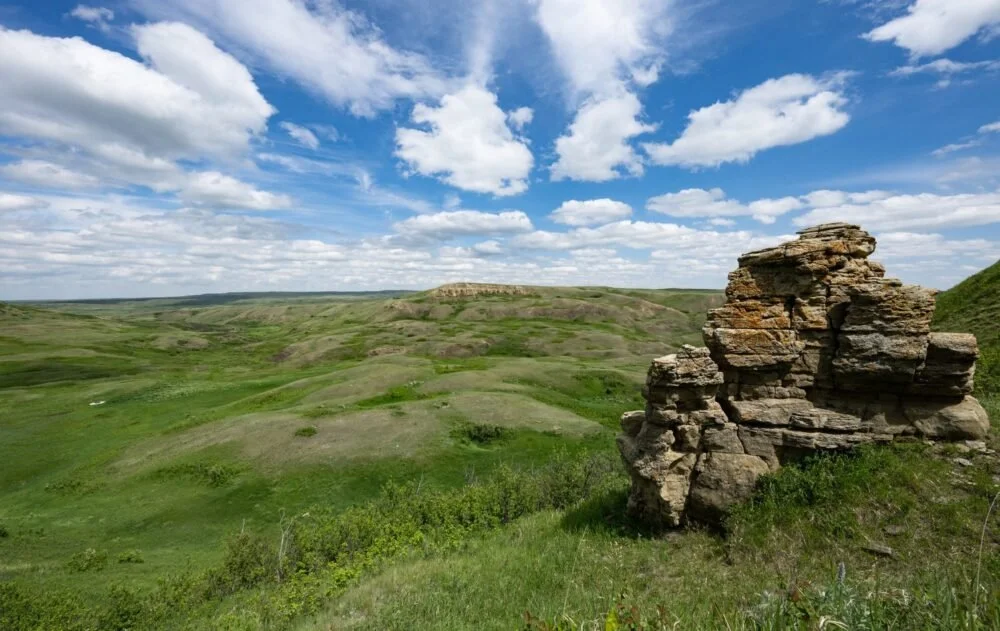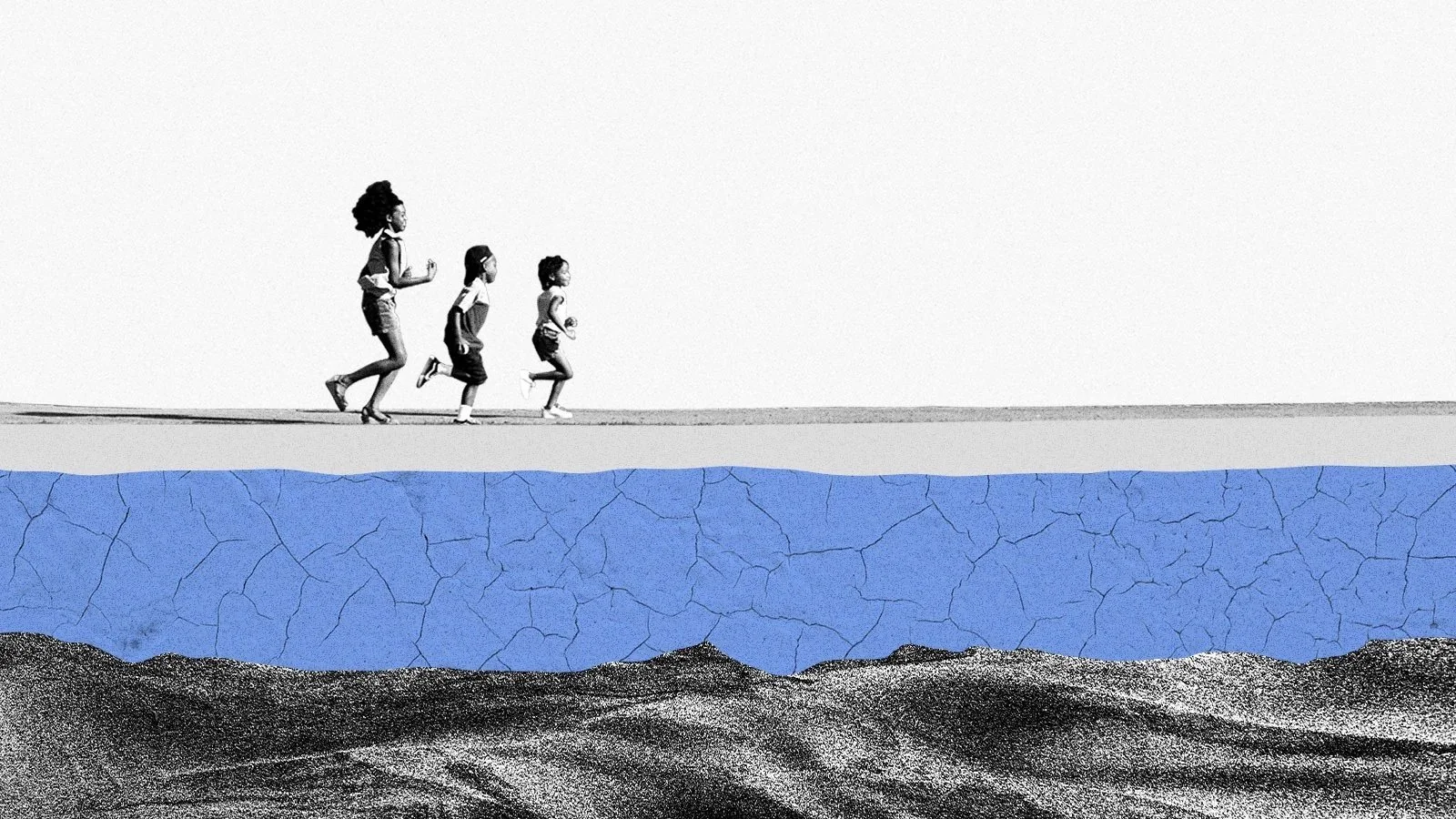The purest water in the world, bubbling up to the surface between Waverley and Elmvale, will be featured on TVO's The Water Brothers episodes Thursday and Sunday nights. The episode entitled 'The World's Oldest Water' has hosts Tyler and Alex Mifflin looking into not only the oldest water in the world found near Timmins, but also the purest water and that's right here in north Simcoe.
Reducing road salt use 'not something that can wait' as Ontario lakes see oxygen depletion, researcher says
The move to reduce the amount of road salt during the winter months can't wait because Ontario's groundwater and lakes are showing "very rapid salinization," researchers at the University of Waterloo say. "We actually use a lot of salt, and salt is a very effective way to keep roads, sidewalks and parking lots free of ice, and that, of course, is important in terms of ensuring the safety of road users and pedestrians," said Philippe Van Cappellen, a professor and researcher at the school, as well as the Canada Excellence Research Chair Laureate in Ecohydrology
Dune erosion on Sable Island caused loss of groundwater along exposed coast
Where sand dunes disappear on Sable Island, so does the underground freshwater supply, according to new research underscoring the importance of dunes to the island's ecosystem. The dunes serve as a natural barrier, protecting against the relentless waves and temporary salinization of groundwater caused by ocean flooding. Dunes also help refresh the water table by funnelling water from rain and snow into aquifers that, in some places, are 40 metres deep.
Imperial and Alberta regulator knew for years about oilsands tailings seepage, documents show
Documents filed by Imperial Oil Ltd. show the company and Alberta's energy regulator knew the Kearl oilsands mine was seeping tailings into groundwater years before a pool of contaminated fluid was reported on the surface, alarming area First Nations and triggering three investigations. "They knew there was seepage to groundwater," said Mandy Olsgard, an environmental toxicologist who has consulted for area First Nations.
Osoyoos’s drinking water to get a $9-million upgrade
The project will include the construction of a raw-water line to treat groundwater in Osoyoos, which is not currently treated and is high in manganese. The province said these upgrades will allow the water to be properly disinfected with chlorine and ultraviolet systems. The upgrades are expected to meet the Guidelines of Canadian Drinking Water Quality and Interior Health’s drinking water standards.
Conservation leaders join forces on largest private grassland project in Canadian history
The Nature Conservancy of Canada (NCC) and Ducks Unlimited Canada (DUC) are working together to conserve one of the largest remaining tracts of intact Prairie grasslands and wetlands in Canada. McIntyre Ranch, located south of Lethbridge, will be conserved through an agreement (conservation easement) between the landowners and the two organizations. This 130-year-old ranch is one of the largest private landholdings in Canada, and spans over 22,000 hectares — an area more than a quarter the size of Calgary.
Toxic Mash: Air, Water, Food and Climate Change
The callous exploitation of natural resources underlines the context that has created a mash-up of toxins – in the air we breathe, the water we drink and the food we ingest. Consider the state of water. Data published by UN Water show that over 2 billion people, or roughly a quarter of the world population, lack “safely managed” drinking water and 2.3 billion live in water-stressed countries. Groundwater accounts for a major share of human consumption and is threatened by contamination by fertilisers, pesticides, industrial and mining wastes, petroleum products and solid waste landfills. A Lancet report reveals that water pollution was responsible for 1.4 million premature deaths in 2019. The World Bank has observed that shallow groundwater in every populated region should be considered at risk of pollution.
Drought, water overuse prompt Arizona to limit construction in some fast growing parts of Phoenix
Arizona will not approve new housing construction on the fast-growing edges of metro Phoenix that rely on groundwater thanks to years of overuse and a multi-decade drought that is sapping its water supply. Gov. Katie Hobbs recently announced the restrictions that could affect some of the fastest-growing suburbs of the nation’s fifth-largest city. Officials said developers could still build in the affected areas but would need to find alternative water sources to do so – such as surface or recycled water.
TLTI council to consider hydrogeological study
Township of Leeds and the Thousand Islands will consider proceeding with an amendment to increase the Permit to Take Water (PTTW) for the Lansdowne water system with the Ministry of Environment, Conservation and Parks. And they’ll consider proceeding with a hydrogeological study to determine that suitable groundwater exists to accommodate future growth. The Committee of the Whole has recommended that council allocate a budget of up to $180,000 from the Water Reserve Fund to fund the hydrogeological study.
Keller Foundations Ltd. fined $1 million for depositing harmful concrete leachate into groundwater that flowed into Larson Creek, British Columbia
Canadians value clean water and a sustainable environment. Environment and Climate Change Canada enforcement officers work to verify that businesses and individuals comply with laws and regulations that protect Canada's natural environment. On March 17, 2023, in the Provincial Court of British Columbia, Keller Foundations Ltd. was ordered to pay a total penalty of $1 million after pleading guilty to one charge laid for violations of subsection 36(3) of the federal Fisheries Act. The charge stemmed from an investigation into the deaths of approximately 85 Cutthroat Trout in Larson Creek in West Vancouver. The fine will be directed to the Government of Canada's Environmental Damages Fund and will support projects that have a positive impact on Canada's natural environment.
City of Whitehorse facing $39M upgrade to keep clean water flowing
The City of Whitehorse is facing a pricey upgrade to its water treatment system, after officials noticed changes in the quality of the city's groundwater in recent years. The proposal is to add a new filtration system, at a price of about $39 million — and the city is not yet sure where that money will come from. There's also a timeline, as the work would need to be done before the city's water licence comes up for renewal in five years. "At no time is our water not safe to drink," said Mike Firlotte, the city's water and wastewater services manager.
It’s not just oceans rising. It’s groundwater, too
Beneath our feet there is an invisible ocean. Within the cracks of rock slabs, sand and soil, this water sinks, swells and flows — sometimes just a few feet under the surface, sometimes 30,000 feet below. This system of groundwater provides a vital supply for drinking and irrigation, and feeds into rivers, lakes, and wetlands. Across the globe, it contains 100 times as much fresh water than all the world’s rivers and lakes combined.
Road salt impacts groundwater year-round
To reduce hazardous winter driving conditions, highway departments turn to salt de-icers. Does road salt affect groundwater? If so, is there a lasting impact that can be measured? The Delaware Geological Survey is taking an in-depth look at groundwater quality. Rachel McQuiggan, a researcher at the University of Delaware, is monitoring storm water and groundwater at infiltration basins — large, shallow roadside pools that allow water to infiltrate the groundwater.
Groundwater warning in California a wake-up call for Canada: Famiglietti
Renowned water scientist Dr. Jay Famiglietti (PhD), lead researcher of a scientific team that in late December published a paper in the prestigious Nature Communications journal detailing what their analysis indicates, has a blunt message: “All around the world, we have been kicking the can down the road for a long time on effectively managing groundwater. Now we are at the end of the road, and it’s a dead end.”
Here's how to reduce the risk of cancer if you have arsenic in your well water
A Memorial University researcher is urging well owners in Newfoundland to make lifestyle changes to reduce the risk of disease caused by arsenic exposure. Atanu Sarkar, an assistant professor in the Faculty of Medicine, says years or decades of drinking water contaminated by arsenic increases the risk of several cancers — including kidney, liver and lung cancer — due to epigenetic changes that occur during long-term exposure. "They're more prone to have cancer in [the] future," Sarkar said.
Water returning to popular Conception Bay South pond after it drained dry following water and sewer work
Some Conception Bay South residents were hopping mad in the fall after a popular neighbourhood pond on Frog Pond Road in Topsail — home to ice skating and hockey in the winter, and exploring in the summer — was left dry after water and sewer work was completed. But water has found its way back to Frog Pond, although the mild fall and winter has not yet frozen the water enough to make the ice safe for skating. The issue was discussed at the Dec. 6 Conception Bay South council meeting.
Credit Valley Conservation conducting public survey for development of new Credit River Watershed plan
Credit Valley Conservation (CVC) is conducting a public survey to get input for the development of its new plan for the Credit River Watershed. A watershed is an area of land that drains surface water and groundwater into a body of water such as a river or stream. Watersheds are essential for both people and wildlife. A healthy watershed will slow, clean, filter and store water which would reduce flood risk, improve water quality, provide habitat for a diversity of species and increase resilience in a changing climate.
Former residents of Quebec military base must apply for compensation for contaminated water before Jan. 15
It took Ed Sweeney more than 20 years to discover he was drinking contaminated water in his family home in the 90s. He lived in military housing on Canadian Forces Base Valcartier from 1992 to 1998. A friend reached out to him last year on Facebook about how he could receive compensation from the federal government and two private companies as part of a multimillion-dollar contaminated water case in Shannon, Que.
A new mine could position Quebec as a lithium leader, but its rocky past worries locals
In an expansive open-air pit 550 kilometres northwest of Montreal, 100-tonne trucks criss-cross the climbing roads, preparing for the mine to open. The chalk-white veins of those rocks have metals inside, including one of the most sought-after minerals in the world: lithium, a key component of electric car batteries. When production restarts at the La Corne, Que., lithium mine early next year, it is set to be one of the only functional lithium concentrate mines in North America and position Quebec as a Canadian lithium leader.
Why Canada’s inaction on the oil sands toxic tailings might cost us more than our biodiversity
Canada cultivates a misleadingly good reputation abroad. I would know; I moved here because of it. However, this advantageous position is increasingly under threat as Canada keeps putting industry interest over environmental stewardship. September 4th marked the second anniversary of when the international Commission for Environmental Cooperation’s (CEC) Factual Record documented overwhelming evidence that Canada’s oil sands tailings “ponds” are leaking toxic pollutants into groundwater and tributaries of the Athabasca River.





















